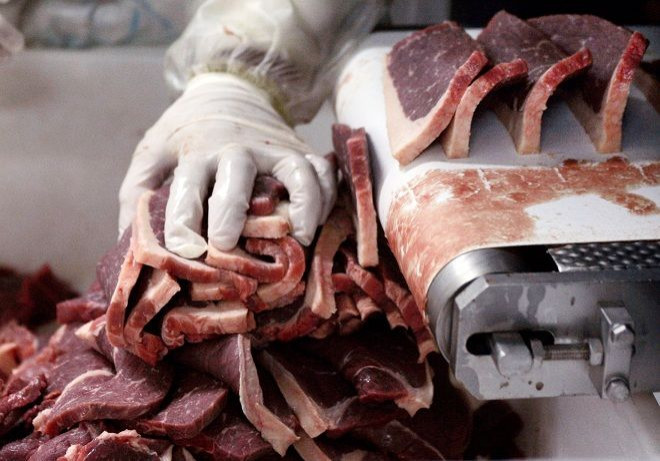Scientists: We Must Slash Meat Consumption to Feed 9.3bn by 2050, Slow Global Warming

We need to drastically reduce the amount of meat we eat, particularly beef, to rebalance the global carbon cycle and lower the risks of dangerous global warning, according to a new study.
Scientists from the University of Exeter say that if today's meat-eating habits continue, they predict that that a rise in the global population could spell ecological disaster.
Not only do we need to cut out meat consumption, we should also recycle more waste and devote more farmland to crops for bioenergy and carbon storage. Researchers said that while plants are less efficient as an energy source compared to fossil fuels, plants capture and store the carbon that otherwise stays in the atmosphere and contributes to global warming.
In order to feed a population of 9.3 billion by 2050 and slow global warming, researchers say that the world must adopt a "low-meat, high-efficiency" scenario. The average global meat consumption needs to be brought down from 16.6 percent to 15 percent of average daily calorie intake, which is about half of the average western diet.
Researchers found that by 2050, a "high-meat, low-efficiency" situation would increase the amount of carbon dioxide in the atmosphere by 55 parts in a million, whereas a "low-meat, high-efficiency" scenario would lower carbon dioxide levels by 25 ppm, which is small enough to keep the rise in global temperature below the two-degree threshold which according to climate experts is the maximum "safe" increase.
"Our research clearly shows that recycling more and eating less meat could provide a key to rebalancing the global carbon cycle. Meat production involves significant energy losses: only around four per cent of crops grown for livestock turn into meat," lead researcher Tom Powell of the University of Exeter said in a statement.
"By focusing on making agriculture more efficient and encouraging people to reduce the amount of meat they eat, we could keep global temperatures within the two degrees threshold," Powell added.
"Bioenergy with carbon storage could play a major role in helping us reduce future levels of atmospheric carbon dioxide. However, we only stand a chance of realizing that potential, both for energy and carbon capture, if we increase the efficiency of agriculture. With livestock production accounting for 78 per cent of agricultural land use today, this is the area where change could have a significant impact," co-author Professor Tim Lenton, also of the University of Exeter, said in a statement.
The study was published Wednesday in the journal Energy and Environmental Science.
Published by Medicaldaily.com



























